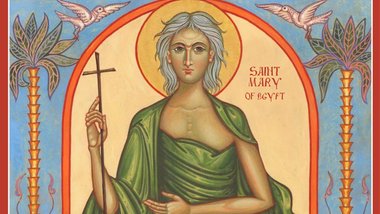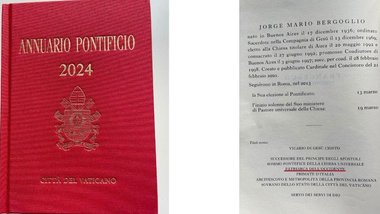Russian Catholic Bishop Claims Interference Continues
Interference in the Internal Affairs of the Catholic Church in Russia Continues A Statement by Metropolitan Thaddaeus Kondrusiewicz 1. We want to express our bewilderment and serious concern at the interference in the internal affairs of the Catholic Church in Russia which in the past few days has become more glaring. We would like to make our statement in the light of the following points: religious groups have the right to self government in accordance with their own hierarchical and organisational structure; it is the duty of the Apostolic Representation and the bishops of the Catholic Church to create normal conditions for the pastoral care of the faithful; according to Canon Law the normal structures of the Catholic Church are dioceses and metropolitan sees (ecclesiastical provinces); the setting up of temporary Russian Apostolic Administrations as regular dioceses which took place on 11th February 2002, does not contravene present Russian law; this essential step for Russian Catholics was carried out with notification to the government and ecclesiastical authorities of the Russian Orthodox Church in accordance with generally accepted international practice; Furthermore we are convinced that the Catholics of the Russian Federation have the same rights as citizens professing other religions and that the lawful exercise of those rights must not in any way give rise to suspicion or be held subject to political speculation. 2. Moreover, we consider it our duty to publicly reject the unfounded assertions contained in the public Statement of the Patriarch of Moscow and of all Russia, Alexei II, and of the Holy Synod of the Russian Orthodox Church dated 12th February 2002. 3. In that Statement it is alleged that "a form of Catholic Church life" has been founded in Russia which is "untypical even for Catholic countries where ecclesiastical provinces do not usually exist - that is dioceses administered by a Metropolitan." This assertion is not correct. The Code of the Church's Canon Law states that for proper collegiate pastoral activity in different neighbouring dioceses and for the proper collaboration between diocesan bishops and different neighbouring dioceses, higher ecclesiastical authority is invested in ecclesiastical provinces, that is in metropolitan sees. (cf Canon 431 ) The head of a metropolitan see is a metropolitan bishop, who is always a resident archbishop in the archdiocese governed by him. This authority is bound to an episcopal see which is created by the Roman Pontiff. Metropolitan sees exist for example, in Paris, Washington, Prague, Milan and Warsaw. (In Poland alone there are thirteen metropolitan sees.) At present they also exist in countries of the former Soviet Union, the mertopolitan sees of Riga, Minsk-Mogiliev, Vilnius, Kaunas and Lvov. Other dioceses within an ecclesiastical province are called "suffragan" sees. Canon law defines the authority of the metropolitan bishop in their regard: to assure the fullness of the faith and ecclesiastical discipline and to bring abuse to the attention of the Roman Pontiff (Canon 436 sect. 1) to conduct canonical visitation with the approval of the Apostolic See in the case of a suffragan bishop not administering his diocese (Canon 436 sect. 1) to appoint an administrator to a vacant episcopal see within eight days of its falling vacant (Canon 436 sect 1) A metropolitan does not have any other authority in his suffragan dioceses (Canon 436 sect.3) 4.. In its Statement the ruling authorities of the Russian Orthodox Church state that "Russian territory was never divided into Catholic dioceses." We must call to mind the following facts; Episcopal structures of the Catholic Church already existed in the south of Russia in the XIV-XV centuries. St Petersburg, the capital of the Russian Empire, was the center of the Mogiliev metropolitan diocese. Saratov was the seat of the Tiraspolis diocese. Besides this the diocese of Vladivostok was erected in 1922. The Archbishop of Mogiliev had the title of Metropolitan of all the Catholic churches in the Russian Empire. from the founding of the Metropolitan See of Mogiliev to its extinction at the expulsion from the country of its last occupant, Metropolitan Ian Tsepliak, the see of St Petersburg was occupied by twenty-seven bishops. Therefore Catholic dioceses and metropolitan sees with their metropolitan and suffragan bishops have in fact existed within the present day boundaries of the Russian Federation. 5. Taking the above into consideration, we hold that the changes in the status of the Catholic Church in Russia and the erection of an ecclesiastical province cannot be described as establishing "a new Catholic structure, parallel to the Russian Orthodox Church." We would also like to make the following points: Firstly, the dioceses do not take their names from the cities where they have their centers. There is no Metropolitan of Moscow or of Russia, instead there is a Metropolitan in Moscow. Secondly, in the Russian Orthodox Church, there exists, for example, the Metropolitan of Vilnius and Lithuania and the Archbishop of Brussels and Belgium, of Berlin and Germany, and no-one in the Catholic Church is against these, since these metropolitan titles are the internal affair of the Russian Orthodox Church which names archbishops according to its needs: Thirdly, a metropolitan does not have any real authority in different dioceses for they are autonomous and are governed by their own bishops. 6. In the Statement referred to above, mention is made in turn of multiple examples of missionary activity by Catholic clergy among the Russian population. "In fact, we describe this activity as "proselytism" and continually indicate this as one of the outstanding reasons working against the improvement of relations between our two Churches" it is said in the document. For our part we have repeatedly invited over a period of eleven years the leaders of the Russian Orthodox Church to discuss concrete details and to give hard facts of proselytism by Catholics in Russia. We want to know the facts of exactly who is involved or has been involved in proselytism, in what places, at what times and in what circumstances. Unfortunately, we have not yet received any answer, neither have we received any response to our invitation "to sit at a round table to arrive at an agreement of the meaning of the term proselytism".. 6 Despite the deterioration in the already strained situation in relations between the Catholic and Russian Orthodox Churches, I hope and pray to God that the dialogue will continue and be fruitful. I am convinced that the Catholic and Orthodox Churches can together respond to the calls of our age for the good of mankind and of civilisation. +Metropolitan Thaddaeus Kondrusiewicz Moscow 13th February 2002 Statement distributed by the Information Center of the Conference of Catholic Bishops of the Russian Federation. Please give acknowledgement of quotations









